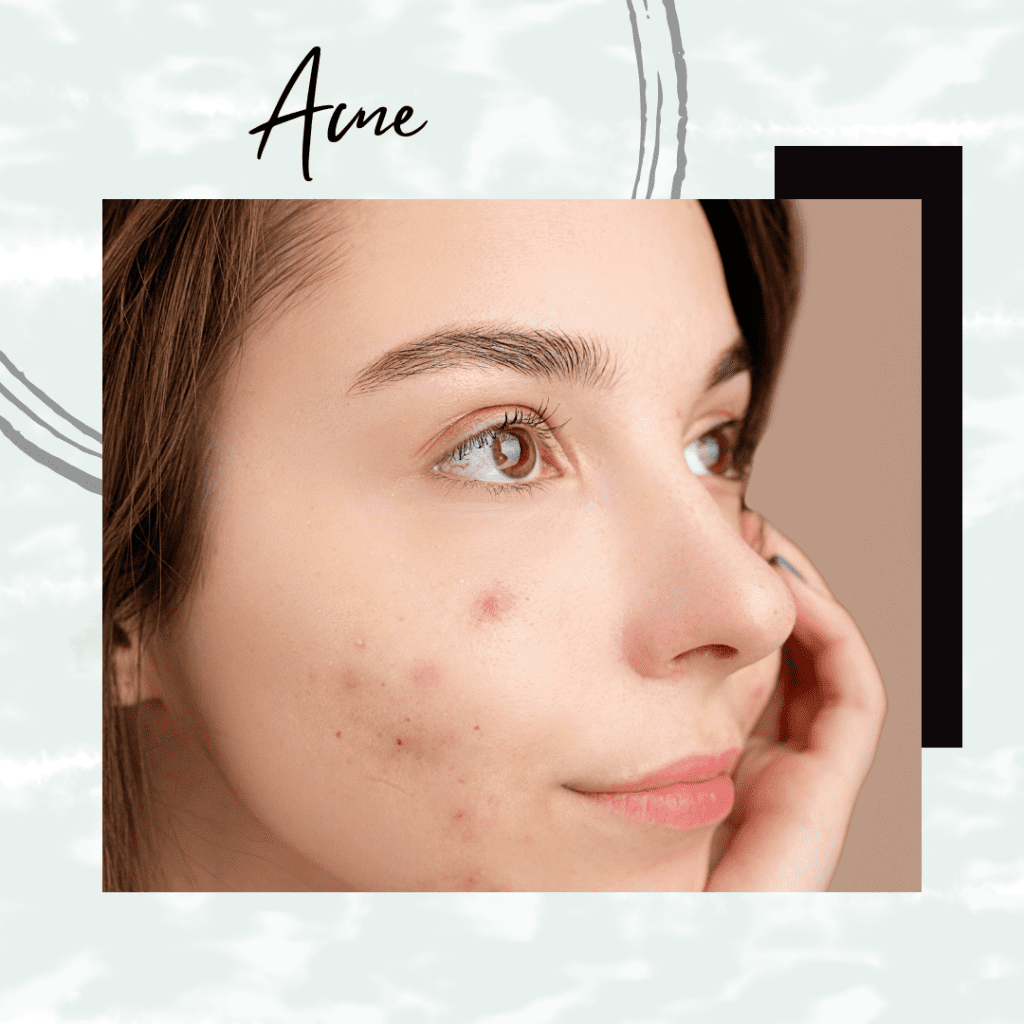Understanding Acne: An Esthetician’s Guide to Clearer Skin
Acne is a common and often distressing skin condition that affects millions of people worldwide. As an esthetician, I encounter clients struggling with acne regularly, and I understand how it can impact self-esteem and overall confidence. My goal is to demystify acne and provide practical advice on managing and preventing breakouts, emphasizing a holistic approach to skincare.
What is Acne?
Acne is a multifactorial skin disorder characterized by the presence of pimples, blackheads, whiteheads, and sometimes cysts. It primarily occurs when hair follicles become clogged with oil (sebum) and dead skin cells. This blockage creates an environment where bacteria can thrive, leading to inflammation and the formation of acne lesions.
The Causes of Acne
- Hormonal Fluctuations: Hormonal changes, particularly during puberty, menstruation, pregnancy, or due to conditions like polycystic ovary syndrome (PCOS), can increase sebum production, leading to acne.
- Genetics: A family history of acne can increase the likelihood of developing the condition.
- Diet: Certain foods, especially those high in refined sugars and dairy, may trigger or worsen acne in some individuals.
- Stress: Stress can lead to hormonal imbalances and inflammation, contributing to breakouts.
- Skincare Products: Using products that are not suitable for your skin type or that clog pores can exacerbate acne.
- Environmental Factors: Pollution, humidity, and exposure to irritants can affect the skin’s health and lead to acne.
The Role of an Esthetician in Managing Acne
As estheticians, we play a crucial role in helping clients manage and improve their acne. Here are some key aspects of our approach:
- Personalized Skin Analysis: Begins with a thorough skin analysis to understand the client’s skin type, acne severity, and underlying causes. This helps to tailor treatments and recommendations to their specific needs.
- Professional Treatments: In-office treatments such as chemical peels, extractions, and light therapy can be highly effective in reducing acne. These treatments help to unclog pores, reduce bacteria, and promote skin healing.
- Customized Skincare Regimens: We provide clients with personalized skincare routines, including cleansers, toners, serums, and moisturizers suited to their skin type and condition. Non-comedogenic and gentle products are often recommended to avoid further irritation. Professional products like the ones from Circadia, GlyMed+ and Skin Script are formulated to give results.
- Education and Lifestyle Advice: Educating clients about the importance of a consistent skincare routine, a balanced diet, and stress management is essential. Simple lifestyle changes, such as changing pillowcases regularly and avoiding touching the face, can also make a significant difference.
- Ongoing Support: Acne management is an ongoing process, and we offer continuous support and adjustments to treatment plans as needed. Regular follow-ups help track progress and make necessary modifications to ensure optimal results.
Practical Tips for Managing Acne at Home
- Cleansing: Use a cleanser that targets acne, like Cleansing Gel with Mandelic Acid, Clear Skin Cleanser with Benzoyl Peroxide or Charcoal Clay Cleanser, twice daily to remove excess oil and impurities without stripping the skin of its natural moisture.
- Exfoliation: Incorporate gentle exfoliation 1-2 times a week to remove dead skin cells and prevent clogged pores. Avoid harsh scrubs that can irritate the skin and opt for a chemical exfoliant like Serious Action Masque or Clarifying Toner Pads. It is important to follow the recommendations of your esthetician as too much exfoliation can cause dryness.
- Moisturization: Even oily skin needs hydration. Opt for a lightweight, non-comedogenic moisturizer to keep the skin balanced. Daytime Control Lotion, Recovery Cream with Arnica or Light Aloe Moisturizer are good options.
- Sun Protection: Apply a broad-spectrum sunscreen daily, that has at least an SPF30. Some acne treatments can make the skin more sensitive to the sun, so protection is crucial.
- Avoid Picking: Resist the urge to pick or pop pimples, as this can lead to scarring and further inflammation.
- Healthy Diet: Focus on a balanced diet rich in fruits, vegetables, lean proteins, and whole grains. Limit the intake of refined sugars and dairy if you notice they trigger your acne.
Conclusion
Managing acne requires patience, consistency, and a comprehensive approach that addresses both external and internal factors. As estheticians, we are dedicated to helping our clients achieve clearer, healthier skin through personalized care, professional treatments, and ongoing support. Remember, every skin journey is unique, and with the right guidance and commitment, clear skin is within reach.
If you’re struggling with acne, don’t hesitate to seek professional help. Together, we can create a plan that works for you and restores your confidence in your skin.
